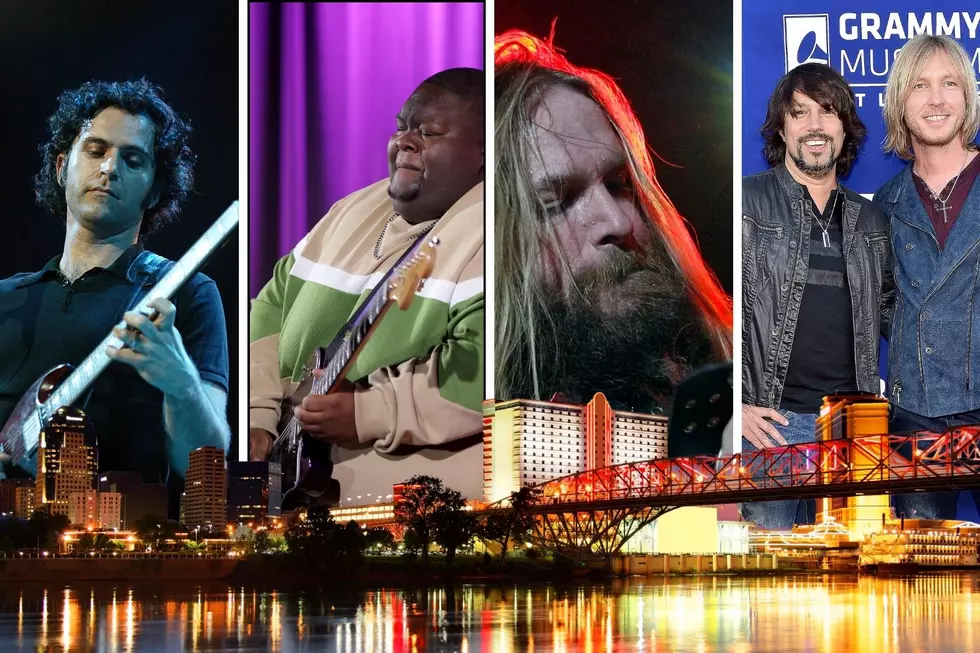
Brit Marling Shares Her Harvey Weinstein Story in Powerful ‘Economics of Consent’ Essay
Over 40 women (and counting) have accused Harvey Weinstein of sexual harassment and assault in the two short weeks since the former studio executive’s history of horrific misogyny was publicly exposed. Many celebrities and filmmakers have expressed remorse for their ignorance to the years of abuse endured by their peers, co-stars, and, occasionally, their friends. And while most have condemned Weinstein’s actions and called for an end to these abuses of power, only a few have spoken eloquently about the systemic misogyny that extends beyond Hollywood — which is merely a symptom of a larger epidemic. One of those few is indie filmmaker and actor Brit Marling.
Marling penned a powerful essay for The Atlantic, in which she offers a short biography of her life leading up to a 2014 encounter with Weinstein in his hotel room. According to Marling, who left a lucrative career in investment banking to become an actor, auditioning to play (often nameless) sexist stereotypes in films inspired her to begin writing her own screenplays — which eventually led to booking not one, but two films at Sundance in 2011. “I’m taking you through this brief history because,” she writes, “it’s important to understanding that when Harvey Weinstein requested a meeting with me in 2014—when the industry had deemed I was legitimate fresh meat—I was, in some ways, in a slightly different position from many who had walked this gauntlet before me.”
Marling’s story is, inevitably, a familiar one:
I, too, went to the meeting thinking that perhaps my entire life was about to change for the better. I, too, was asked to meet him in a hotel bar. I, too, met a young, female assistant there who said the meeting had been moved upstairs to his suite because he was a very busy man. I, too, felt my guard go up but was calmed by the presence of another woman my age beside me. I, too, felt terror in the pit of my stomach when that young woman left the room and I was suddenly alone with him. I, too, was asked if I wanted a massage, champagne, strawberries. I, too, sat in that chair paralyzed by mounting fear when he suggested we shower together. What could I do? How not to offend this man, this gatekeeper, who could anoint or destroy me?
It was clear that there was only one direction he wanted this encounter to go in, and that was sex or some version of an erotic exchange. I was able to gather myself together—a bundle of firing nerves, hands trembling, voice lost in my throat—and leave the room.
As we’ve learned over the past two weeks, Weinstein’s accusers range from established actors and writers to Hollywood newcomers hoping for their big break. Some women were able to leave the room; many others could not. Some went on to find their own measure of success; others had their careers suppressed for rejecting him; still, others left the business entirely. In every instance, Weinstein abused his power to victimize those who could benefit from it. Marling explains:
I’m telling this story because in the heat surrounding these brave admissions, it’s important to think about the economics of consent. Weinstein was a gatekeeper who could give actresses a career that would sustain their lives and the livelihood of their families. He could also give them fame, which is one of few ways for women to gain some semblance of power and voice inside a patriarchal world. They knew it. He knew it. Weinstein could also ensure that these women would never work again if they humiliated him.
“That’s not just artistic or emotional exile,” she writes, “that’s also economic exile.”
In her exceptionally thoughtful essay, Marling illustrates “the role economic inequality often plays in rape culture.” Because the majority of people in power — not only in Hollywood, but in all industries — are straight, white men, it is mostly straight, white men who benefit.
The things that happen in hotel rooms and board rooms all over the world (and in every industry) between women seeking employment or trying to keep employment and men holding the power to grant it or take it away exist in a gray zone where words like “consent” cannot fully capture the complexity of the encounter. Because consent is a function of power. You have to have a modicum of power to give it. In many cases women do not have that power because their livelihood is in jeopardy and because they are the gender that is oppressed by a daily, invisible war waged against all that is feminine—women and humans who behave or dress or think or feel or look feminine.
A sentiment frequently expressed by male celebrities and filmmakers in their statements condemning Harvey Weinstein is that men need to be better allies and fight alongside women to end misogynistic violence. What’s missing from these statements is how. It is inarguably a monumental task, but Marling’s essay explores the steps that must be taken down a path that has no shortcut. Because men hold most of the world’s wealth and are typically paid more than women, “stopping sexual harassment and abuse will involve fighting for wage parity,” she writes.
“This also means women and men in power need to turn around and hire more women,” Marling says, “especially women of color, especially women who have not grown up with economic privilege.” That speaks to every industry, of course, but in the world of film and television, placing more women and people of color in positions of power means seeing more women and people of color represented on screen:
Another important step forward would be for all of us to start telling and consuming different stories. If you don’t want to be a part of a culture in which sexual abuse and harassment are rampant, don’t buy a ticket to a film that promotes it. I am as guilty of this as anybody else; sometimes it’s nice to zone out to a film that’s a distraction of epic spectacle. But maybe it’s time to imagine more films that don’t use exploitation of female bodies or violence against female bodies as their selling points. Films with a gender balance and racial balance that better reflect the world we all actually live in.
Films by straight, white men about straight, white men speak almost exclusively to straight, white men — creating a monochromatic cycle that reinforces, however subtly, the notion that straight, white men are the most important, prolific and powerful people in the world. Marling draws a correlation between these myopic, circular narratives and a harrowing real-life experience endured by too many women:
Part of what keeps you sitting in that chair in that room enduring harassment or abuse from a man in power is that, as a woman, you have rarely seen another end for yourself. In the novels you’ve read, in the films you’ve seen, in the stories you’ve been told since birth, the women so frequently meet disastrous ends.
To truly disrupt this oppressive system, we will all need to work together. Victims cannot shoulder the burden of our abuses alone, but we do. We shouldn’t have to relive or publicly recite our traumas every time a Harvey Weinstein is outed, but we do. We should not be required to carry the burden of proof, but we are. And it shouldn’t be our sole responsibility to come up with ways to change a universal system that enables our abusers and renders us powerless, but somehow it is.
“The real danger inside the present moment,” Marling writes, “would be for us all to separate the alleged deeds of Cosby, Ailes, O’Reilly, or Weinstein from a culture that continues to allow for dramatic imbalances of power”:
It’s not these bad men. Or that dirty industry. It’s this inhumane economic system of which we are all a part. As producers and as consumers. As storytellers and as listeners. As human beings. That’s a very uncomfortable truth to sit inside. But perhaps discomfort is what’s required to move in the direction of a humane world to which we would all freely give our consent.



